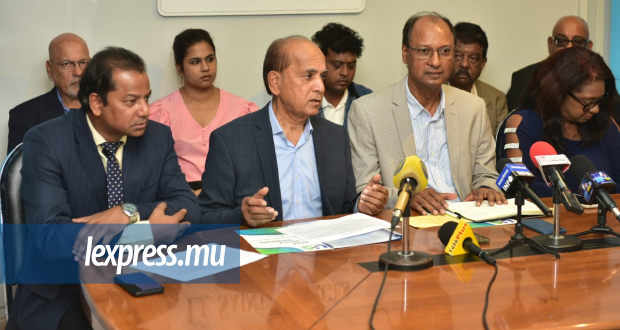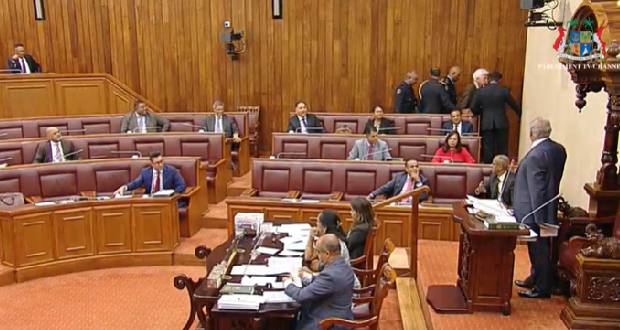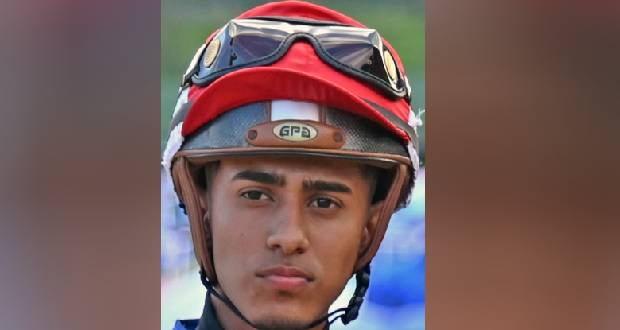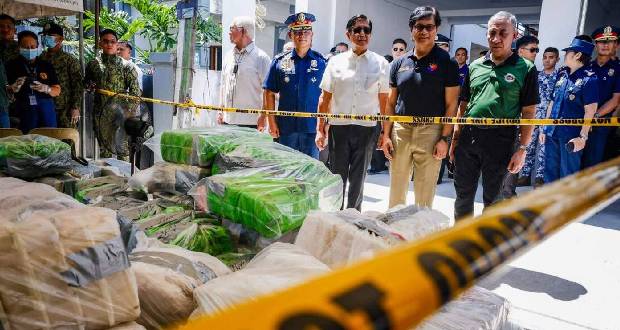Publicité
Aviation Policy in a “Coffre Vide Era”: We are already walking alone !!!
Par
Partager cet article
Aviation Policy in a “Coffre Vide Era”: We are already walking alone !!!

It is a hard reality that not only aviation but also sectors directly and indirectly linked have been decimated by the never ending COVID-19 crisis - surely much harder and over a prolonged timeframe compared to the combined effects of 9/11, the 2008 global financial crisis and SARS pandemic.
Now facts, figures and hard metrics at macro level speak volume whereby as per Fitch Country Risk & Industry Research report of early 2021, recovery will indeed be uneven across Africa, with Gabon, Ghana, Rwanda, Uganda earmarked to achieve 2019 nominal GDP per capita this year and Mauritius planned to do so by 2024 earliest, even if this can be a moving target as the COVID waves and new variants keep hitting our shores.
Against this backdrop, the UN Economic Commission for Africa policy paper on Covid 19 and African airlines of December focusing on liquidity crisis is very telling. For Mauritius, the economic impact as assessed could be dire with loss of airline revenue of $ 544 m, FTE employment at risk of 74,000 and loss of GDP contribution of $ 2 billion due to a web of direct, indirect, induced and tourism impact.
Suffice to say that on top of Government responsibility to protect lives and putting in place COVID specific measures that have proven effective to a certain degree, the 1-year period between both lockdowns should have been used to judiciously plan the restart and recovery of aviation, hospitality and the economy as a whole.
With multiple postponements of the watershed meeting, it looks like not only Air Mauritius / Mauritius aviation system but also the country has been hanging on the administrators getting the much-touted visibility: very much akin to Waiting for Godot as this may never happen under the COVID cloud!
Clearly, the responsibility for this state of affairs and leading the Mauritius ship back on track resides with the Prime Minister, in charge of external communications.
Afterall “Authority comes with Accountability” - If not now when!!
With unprecedented consequences, airlines have grounded all, or almost all of their fleet save for repatriation and ad-hoc flights. But for aviation as a global industry, the most critical question today still remains the duration of the crisis and adequacy of country’s responses and recovery planning with the pandemic becoming endemic and learning to safely live, work and travel as the way of life.
Based on Q1 2021 review, the industry financial performance will be worse and more varied this year than IATA’s December forecast, due to difficulties in controlling the emergence of variants, slower vaccination in some regions and restrictions anew tightened in response to the surge in cases.
On the brighter side, cargo remains a viable business in 2021, the strong economy and restocking driving a market share increase in world trade, with 13 % growth in cargo tonnage compared to WTO forecast of 8%. Cargo globally represents one-third of the industry’s revenues compared with 10-15% of airline business pre-crisis, thus driving airlines to retrofit and deliver profitability on enhanced demand for air cargo services.
Mauritius Response: In as much as the country was positioned as COVID Safe last year, we had a relatively easy path to attain same by closing our single point of entry, namely Sir Seewoosagar Ramgoolam International Airport coupled with Air Mauritius grounded since April 2020 on top of a general lockdown over some months.
Likewise, some 20 countries out of 294 impose a 14-day quarantine compared to most regimes ranging from 0 to 7 days, showing that we must still build capacity in our health system and citizens responsiveness to support a shorter quarantine and opening our borders. This should sustain more traffic through our main point of entry / control with a modern laboratory fully functional and SSR international airport voted by Airport Council International as best airport in Africa.
Rwanda Response: I spent 2 weeks in Kigali end 2020 and could witness firsthand the bold and pragmatic measures taken by Rwanda and embraced by its populace to address COVID related challenges – a modulated mix of one-day quarantine and curfew whilst keeping the international airport open for scheduled passenger and cargo flights.
This ensured that the country is positioned to turn around the tide with a strong signal sent by the international community upon firming up the Commonwealth Head of Government Meeting for June 2021 in Kigali, even if same was postponed recently. At this event, the Kigali International Financial Centre (KIFC) poised to become the preferred mainland center of excellence for investments in Africa would have been launched in the presence of global political and business leaders.
Rwanda has opted for a 1-day quarantine upon arrival with a negative PCR test, despite having over 10 entry points with neighboring countries on top of its International Airport, all supported by upgrading the health system including community clinics across the country whilst diligently managing procurement of health-related equipment and services.
Since resuming operations last July, RwandAir plies 70 % of its pre-COVID routes and major international airlines such as Turkish, Ethiopian, Egypt Air, Kenya Airways, Jambo Jet, KLM Royal Dutch and SN Brussels still serving the country with multiple weekly frequencies, thus supporting both leisure and business travel.
In adopting an agile response with a mix of calibrated lockdown, curfew and short quarantine, the country attracted some 110 000 visitors from April to December last year compared to a nominal 4,138 for Mauritius over the same period.
It is a fact that as per WorldoMeter Index, Rwanda has more cases and death per million than Mauritius, however the key metrics going forward is more the Bloomberg’s Covid Resilience Ranking, currently topped by Singapore, a country with similar quarantine regime as Mauritius. This index is mainly driven by countries’ success in containing the virus with the least social and economic disruption that could be meaningfully extrapolated to cover the holding of elections.
Aviation and Travel in a Part-vaccinated World: Vaccination is certainly not the magic-bullet travel was looking for and testing is here to stay working as a shield alongside vaccination certificates and biosafety measures. Expectations that COVID would be behind us with the onset of vaccination and herd immunity is wishful thinking as global immunization will take years with the virus mutating into more virulent ones and the sheer lack of vaccines.
IATA views quarantines as least effective at preventing Covid-19 from entering the community compared to all forms of passenger testing. Quarantines essentially kill demand for travel and governments must consider the drastic socio-economic aftermath as we as a community and individual learn to live with the virus. But that cannot mean destroying aviation, risking thousands of direct and indirect jobs, crippling economies and tearing apart the social fabric of any country.
Based on more countries making data and evidence-driven decisions to open borders to vaccinated travelers, IATA urged this week that accepting vaccinated passengers should be global best practice to re-open borders. This follows the conclusions by major research institutes that vaccinated travelers are not significant in the spread of the disease and do not pose a major risk as vaccination reduces transmission risk to levels below the risk from a false negative rapid antigen test.
As a practical tool, the Association developed the IATA Travel Pass, a digital platform to manage health credentials, proof of immunization, protect against fraud and enable safe and seamless international travel. It is being trialled by a number of airlines and airports globally, including Ethiopian Airlines and RwandAir in Africa.
- Air Mauritius – From Blackbox to Blackhole
Even under the current predicament with aviation expected recovery to 2019 level earliest by late 2023, governments and airlines must adequately prepare for gradual ramping up once airports and countries reopen under the COVID cloud as this will be much more challenging and dynamic than the ramping down last year.
Four airlines across Africa have ceased operations with two under voluntary administration including Air Mauritius that is currently under ventilator support. What transpired over the last 12 months whereby the airline has been transformed into a black box for most stakeholders is characterized by below Known Unknowns.
Insolvency Act: Inasmuch as there is no Special Administration Regime for airlines under our Insolvency Act, there are inherent challenges and consequences for an airline under Voluntary Administration due to conflict between Insolvency Act and the Civil Aviation Regulations.
However, one wonders to what extent Sub-Part V – Prescribed companies in the Insolvency Act as defined by “company which, by reason of the nature and scale of its activities, or the number of its employees, has a material impact on the national economy and satisfies the criteria in relation to area of activity, financial size or number of employees which are prescribed” could have applied or regulations adapted given the weight of Air Mauritius in the national economy.
In the same vein, the significant implications around closure of borders and Air Mauritius going into voluntary administration warrants that “Insolvency Service” under the Registrar of Company jointly with the Department of Civil Aviation as per ICAO guideline on consumer protection and passenger rights come up with creative solutions more so as customers are a mix of nationals and foreigners. This could even include specific recovery actions for travel agencies regrouped under MAITA.
Civil Aviation Regulations: As a going-concern an airline must still comply with licensing regulations even when operating under Administration, whereby the DCA needs to be satisfied that the operator remains competent to secure the safe operation of the aircraft in line with the CAR requirements.
As the sanctioned Accountable Manager can neither be sub-servient to the Administrators nor to the Board when it comes to regulated affairs, it begs the question as to how any conflicts are resolved when it comes to approval and allocation of resources with the Accountable Manager reporting to Joint Administrators, the ultimate decision makers – what happens in circumstances where both administrators who are at par in their power and authority are not aligned?
Financial Support: Governments must surely shoulder some responsibility for the survival and recovery of airlines and this is premised on the fact that the liquidity crisis was triggered by the abrupt travel restrictions imposed by governments to curb the spread of the pandemic.
As such, globally multiple measures are being implemented in support of ailing airlines. This ranges from grants, loans and loan guarantees, issuing equity and even deferring or waiving payments of debts, rents, charges and taxes. Countries have even bailed out their carriers whereby in the US, the $ 2.2 trillion Coronavirus Aid, Relief, and Economic Security (CARES) Act made provision of $61 billion relief package for US airlines.
Notwithstanding the non-response in Parliament this week, the MUR 9 billion earmarked for the national airline in the current budget and any proposals in the upcoming one can only sit against a detailed investment and expenditure plan shared and agreed upon with Government.
Power of the Administrators: In what is essentially a ‘creditor-centric insolvency regime’ and as per Section C – Effect of appointment (222), the administrators have control of the company’s business, property, and affairs and are required to investigate the company’s affairs and consider possible ways of salvaging the company’s business in the interests of creditors, employees and shareholders.
Given the weight of the airline in the survival and growth of the country, it is critical to ascertain what extent the Administrators have diligently used this prerogative to investigate the affairs of the company more so as they had a year to do so!
Fleet and Debt: It is expected that matters weighing down the company such as decisions to lease 2 A 350-900 and 2 A-330-900neo costing some MUR 3 billion annually with unavoidable and good standing costs for maintenance, insurance etc. of MUR 1 billion needed to be critically looked into on top of planned delivery of A 350-900 for with commitment fees were already paid.
Now, one can surely expect reprieve upon renegotiations of lease rates, payment holidays and deferred aircraft deliveries to provide the airline a lifeline with lessors also squeezed as residual value of new fleet dwindles.
Besides merely parking the aircraft, it warrants the question whether the route of “mothballing” the fleet was assessed. This relates to deactivation, storing, and preservation of capital-intensive assets such as aircraft for later use, a technique adopted by airlines in similar situation.
Furthermore, creditors and any strategic partner including the MIC would surely have a hard look at significant future liabilities burning hardly earned hard currency more so as under the IFRS 16 lease accounting standards, all leases be it finance or operating would be reflected on the balance sheet. This renders matters worse for the majority owner and the airline in case the State extended any Sovereign Guarantee on these transactions.
Successor / Phoenix Company: The proposed injection of MUR 9 billion as per 2020/2021 budget from the National Resilience Fund in the “national airline” without mentioning Air Mauritius opens the door for the setting up of a successor airline either to replace Air Mauritius or as competitor to the company.
In case the Phoenix or Successor route were envisaged and viewed as an easier way to rise again, one should caution on the ownership structure bearing in mind that said company must still be significantly owned and effectively controlled by nationals even if under liberalized regime countries are adopting multi-designation of carriers.
It is worth noting that unless an entity requests new IATA codes, the debt / liability attached to the assigned codes would remain due and identified in the system. As such, in case an operator is reconstituted under local law, it will be difficult to participate in the IATA platform under the same designator and airline codes, namely MK / 239 as this would confuse the system and any reconciliation.
Scope, Scale & Synergy: The intrinsic value of any airline depends on balancing these 3 Ss. With Air Mauritius offloading its medium-haul A-319 aircraft, one could expect that that venture and vulture capital with firsthand knowledge and access are positioned to set up a new regional carrier.
This would cannibalize the traffic developed over decades whilst capitalizing on the goodwill and market built solely by Air Mauritius and its staff at large (local and outstations) without carrying any legacy costs or compensating the national carrier.
As a sign of things to come, the last minute aborted Ethiopian cargo operations in August that could have paved the way for passenger flights proves that the interest of our national airline on its death bed was not adequately protected. Unbeknown to many, Ethiopian airlines 6th freedom business model thru Bole Int. Airport and in couple of years its new 120 million pax airport city outside of Addis-Ababa would suck traffic and typically reduces the local carrier to sub-regional feeder as exemplified by ASKY in Togo and Malawian in Malawi.
Closer to our shores, Ethiopian already provides multiple weekly frequencies to Tana and Nosy-Be in Madagascar whilst being in prime position to take equity participation and control the business model of Air Madagascar, thus taking over feeder regional traffic thru SSR International airport, so critical to sustain Air Mauritius international operations.
Now, long-haul international traffic to Mauritius will take longer to rebuild compared to medium haul leisure and VFR routes (e.g., Europe to the Mediterranean) that is already recovering, especially those catering for older leisure travelers higher in the vaccination queue, with disposable income and urge for a change on their remaining lease of life.
Recent studies shows that the dramatic and livid impact of COVID has brought to the fore challenges associated with another global phenomena, namely climate change that would dampen the propensity of travelers from source markets to take long-haul international flights. This development could even gain political and policy support when green parties make it into seats of power.
Another imminent challenge relates to timely securing landing slots in Europe due to the “Use it or lose it” principle, as the EU parliament extended the derogation to the EU rules on slot utilization to October 2021, corresponding with the new IATA winter season.
What Next: Oblivious of what the proposed Turnaround plan would yield as we inexorably grind towards June 2021, the whole process has been to date very much independently designed and driven by the Administrators without broader engagement with directly concerned and critical stakeholders that would ultimately have to live with and carry the plan going forward.
From what we understand, it looks like a rather simplistic approach for a multi-dimensional problem, more accountancy focused has been adopted to address a highly complex sector with significant implications for the country and its people for decades to come.
One can only hope that what looks like a black box to most will not lead to an economic blackhole for the country and our broader aviation and tourism sector more so as the expectations and stake are sky high.
- Mauritius resurrection – The Flight Plan
As a sea-locked country far from the center of gravity of global trade and tourism lanes, we cannot dissociate the future and fate of the country from that of its national carrier, whichever shape or form this may take.
Notwithstanding the mandate of the DPM led task force focused along the annual budgeting exercise both from a scope and timing perspective, the case at hand with Mauritius and Air Mauritius under the dark Covid cloud entails that our brightest brains, experts from public affairs, private sector and our ready, willing and able diaspora join forces in formulating a workable plan and support its implementation, beyond the straight jacket of the creditor centric mandate of the Administrators.
Under the leadership of the Prime Minister, the country should marshal a Mauritius Action Plan (MAP) that could consider and integrate below building blocks in the grand plan for a revived Air Mauritius and / or a new national carrier.
This could well take a 3-year horizon with sanctioning or not by nationals at the next ballot!
Global Aviation Framework: To adopt and adapt the program developed by the COVID-19 Aviation Recovery Task Force (CART) by the Council of ICAO with Airport Council International (ACI) and International Air Transport Association (IATA) as core members whereby CART enables the collaboration - amongst governments and between governments and industry; vital to ensure the harmonization and consistency of measures essential to restoring air connectivity and passenger confidence in air travel.
Establishing a National Air Transport Facilitation Committee, as required by Annex 9 (Facilitation), or its equivalent, and ensuring its effective functioning to deliver the level of coordination amongst government and industry stakeholders required for prompt and effective actions to adequately respond to potential health risks that could spread through air transport, and protect the population health and aviation interests while ensuring that security is not compromised.
Africa Aviation: A High-Level African Union Task Force (HLTF) coordinated by the African Civil Aviation Commission (AFCAC) developed and endorsed back in July 2020 recommendations and measures aligned to the ICAO CART towards a seamless restart and recovery of aviation in Africa.
One of its main recommendations include the setting up by African Member States of National Plans that will ensure that COVID-19 restart and recovery measures be implemented in a timely manner through opening and provision of facilities and services to support aviation activities in accordance with relevant guidelines such as those issued by ICAO (CART guidance material), WHO and Aviation sector partners.
As prescribed in the UN ECA policy paper, Governments should give adequate priority to the aviation industry in making use of the resources leveraged from COVID-19 response facilities created by development finance institutions and other organizations. They should also harness initiatives such as the African Union COVID-19 Response Fund and the 2020 debt standstill agreed upon by the G20 to support their aviation industry, which is critical to the revitalization of economies on the continent.
National Aviation System: To revalidate the turnaround plan from the Administrators and its implementation / implications against the global “Mauritius Action Plan” with same to include the restart and recovery for the civil aviation and airport systems. If need be, this may warrant changes in law and regulations with the support of people’s representatives in Parliament given that aviation could be construed as a public good.
Future Shape of Aviation: With the pandemic impacting the realization of the African Union (AU) Agenda 2063 and flagship aviation related projects such the implementation of the Single African Air Transport Market (SAATM), the African Continental Free Trade Area (AfCFTA), free movement of persons protocol and removal of visa restrictions, as a country we should be engaged that alongside recovery, aviation and surviving / new operators will have to be ready and support an expedited implementation of these major programs.
Africa Agenda: The convergence of development across multiple sectors in the Indian Ocean and East Africa region under the “Glocalisation - Re-engineering Regional Trade’” model as canvassed in last budget warrants direct airline links between Mauritius and countries with the most progressive development path in mainland Africa focusing on aviation and novel industrial sectors.
In that respect, most of the planned MUR 10 billion Africa investment could be dedicated to a Rwanda/Mauritius partnership with synergies in areas such as aviation, integrated logistics park, industry 4.0, international financial services, agri-business, medicinal cannabis, pharmaceuticals etc. This would prove a better approach for a broad-based Country into Country Continental Partnership than the much-touted Government 2 Government (G 2 G) agreements spread all around with no visibility on actual traction and contribution.
A model to emulate is the Singapore / Vietnam “Connectivity Framework Agreement” (CFA), in force since 2006 that provided the overarching framework for bilateral economic cooperation across six sectors (education, finance, investments, information technology and telecommunications, trade and services, and transportation). This led to a Strategic Partnership Agreement concluded in 2013 and symbolized by the Vietnam-Singapore Industrial Parks (VSIPs).
Destination Tracker: As a joint effort to boost confidence and accelerate recovery of the tourism sector whilst borders reopen gradually, the World Tourism Organization and the International Air Transport Association announced early May a Destination Tracker in preparation for the restart of international travel.
This is a free online platform with COVID-19 indicators, air travel regulations and destination measure regularly updated through their respective websites for governments to provide information on COVID-19 requirements for travel and measures in place at destination. As such, travel stakeholders including Destination Management Organizations and travel agencies will be able to obtain the latest destination information, enabling travelers to make informed decisions when borders reopen and travel resumes.
Safe reopening of borders: The African Union has taken leadership in preparing for the safe restart of aviation in Africa through its “Saving Lives, Economies, and Livelihoods" campaign.
Preparing the industry to safely restart after more than a year of disruption takes careful planning and advanced preparation. Governments need to develop the benchmarks and plans that would enable a safe, orderly and timely restart, namely:
Operational restart plans: Safety remains the industry’s main priority and is a critical pre-condition for restarting operations and for the build-up of traffic thereafter. Airlines need to ready their crew, technical personnel and aircraft. After a year of lockdowns, this requires refresher training, checks and coordination. On top of that airlines will need time to market their services so that there are fare-paying passengers when operations resume.
Tools for COVID-19 testing and vaccination: Testing and vaccinations will continue to play a role as the pandemic comes under control and economies ramp up, including the travel sector. Efficient digital management of health credentials is vital to restart and these should be secure, interface with existing systems, align with global standards and adhere to data privacy.
Vaccine Manufacturing Africa: As a COVID driven plan under the aegis of the African Union and the Africa CDC, an important conference was held last month leading to the launch of Partnership for African Vaccine Manufacturing (PAVM). This was followed by an MOU between the AU Commission and the Coalition for Epidemic Preparedness Innovations (CEPI) with an aim to establish broad vaccine R & D and manufacturing capacity in five regions on mainland Africa for public health security.
Even if Mauritius has not positioned itself as one of the designated locations, the authorities, relevant institutions and private sector could still coalesce around the setting up of a Central Vaccine Agency to become a partner of choice be it on vaccine R & D and / or manufacturing as pharma is an industry with huge potential under the proposed Rose-Belle Pharma & Life Science Park development.
MAP Guiding Principle
The above is indeed a tall task and it is incumbent on those at the helm of the Mauritius ship to ensure that we get our priorities right and do not adopt an isolated and insulated island mindset in delivering on this above all “Roti, Kapda aur Makaan” agenda.
Publicité






